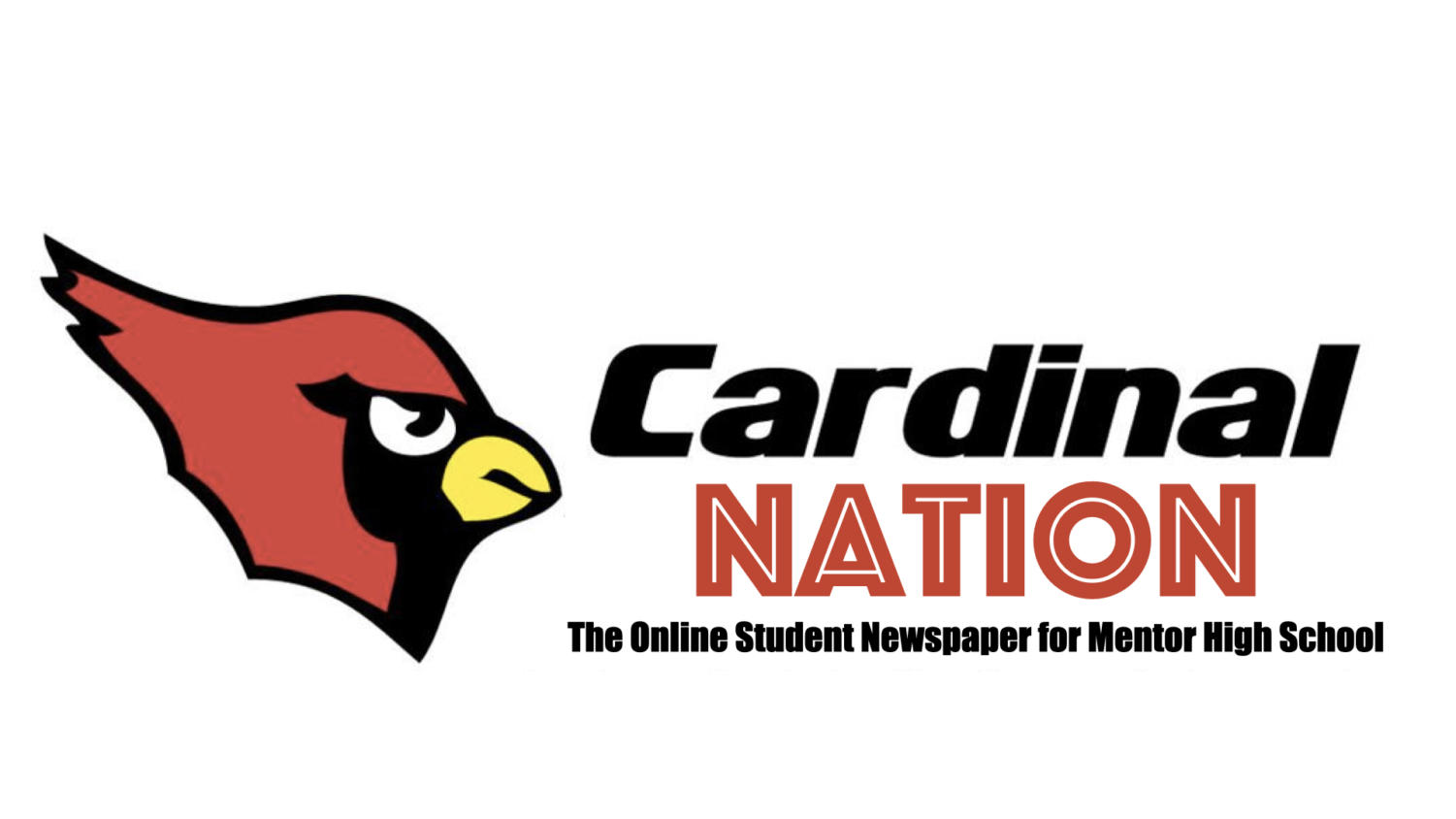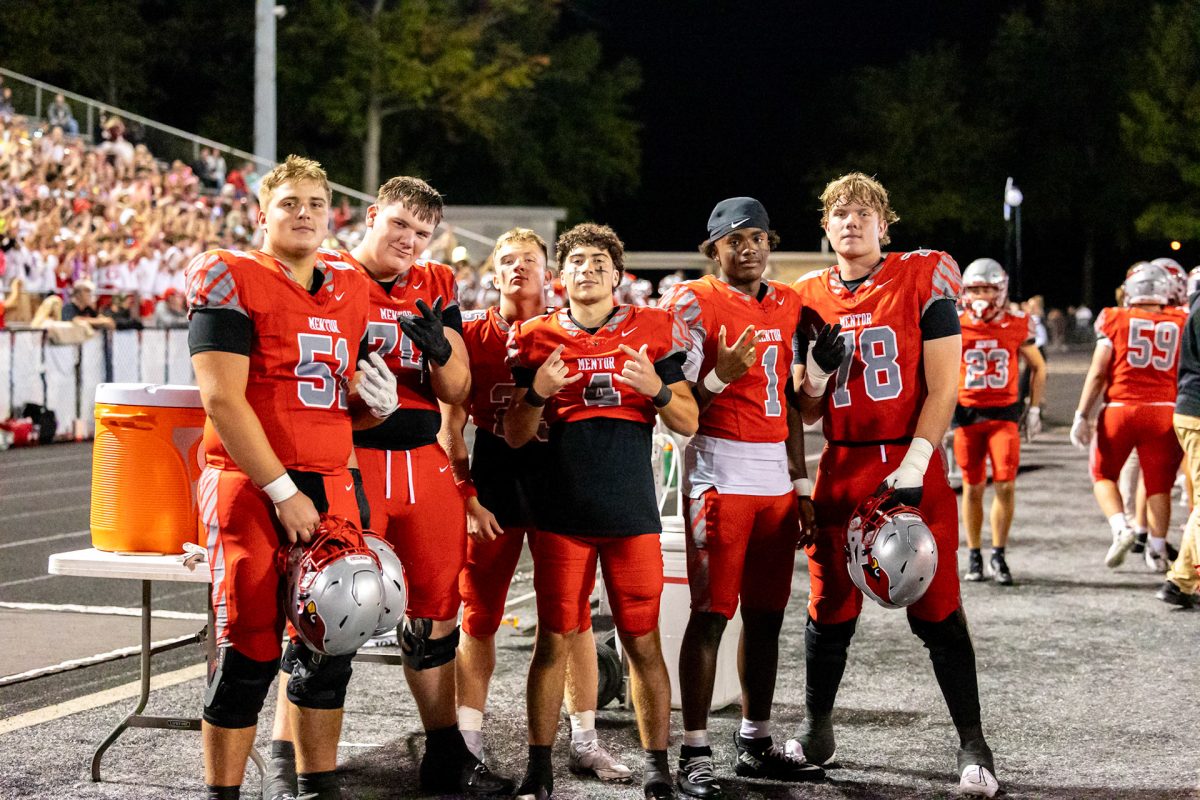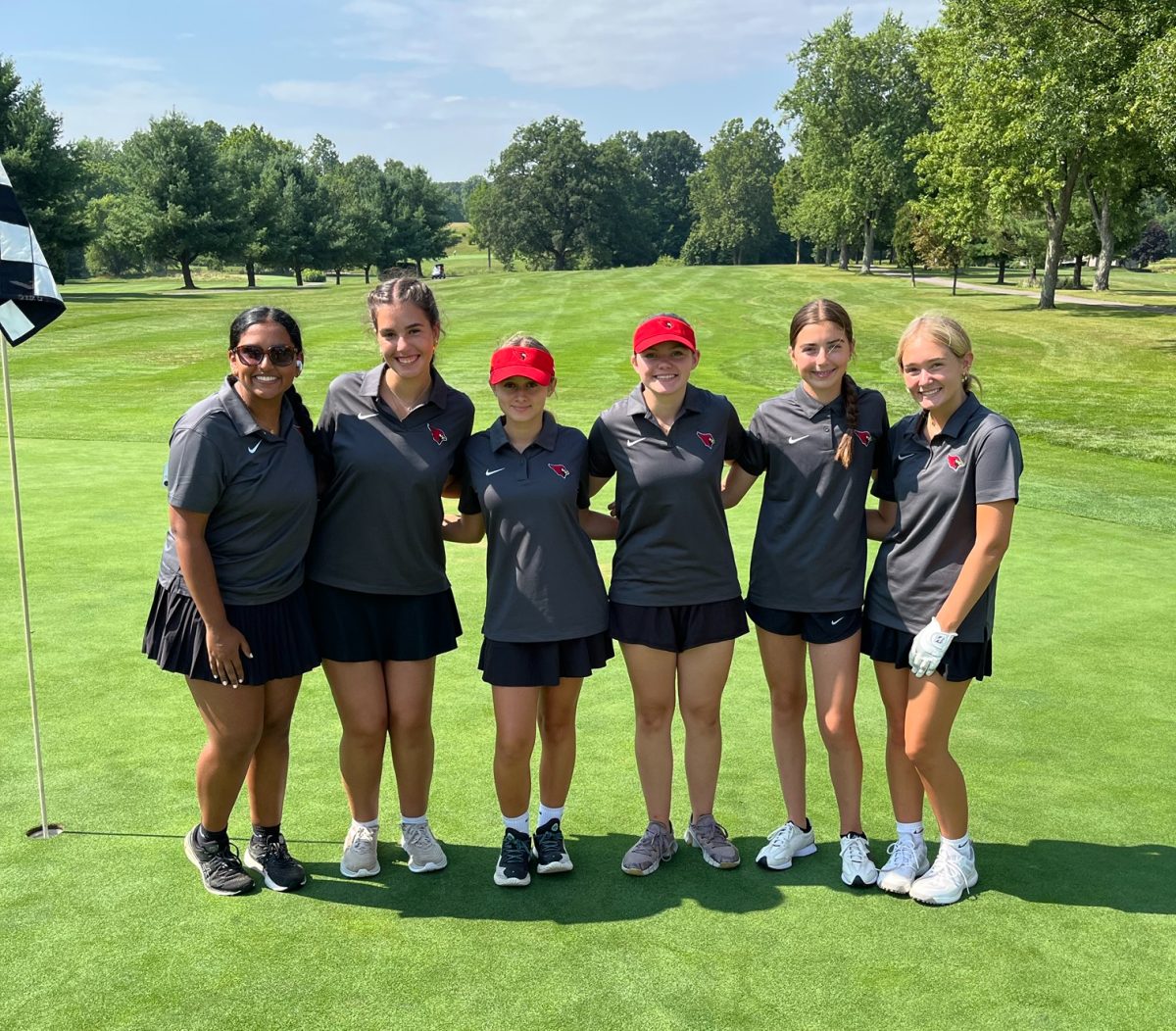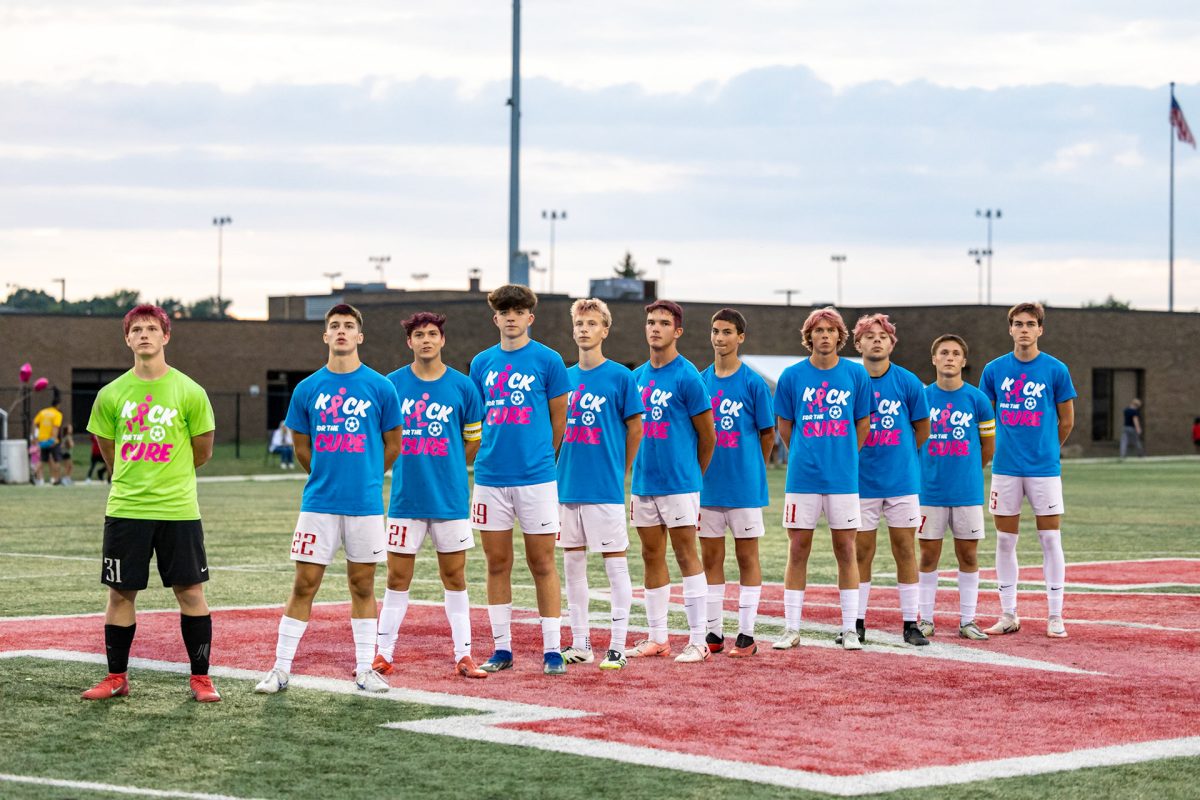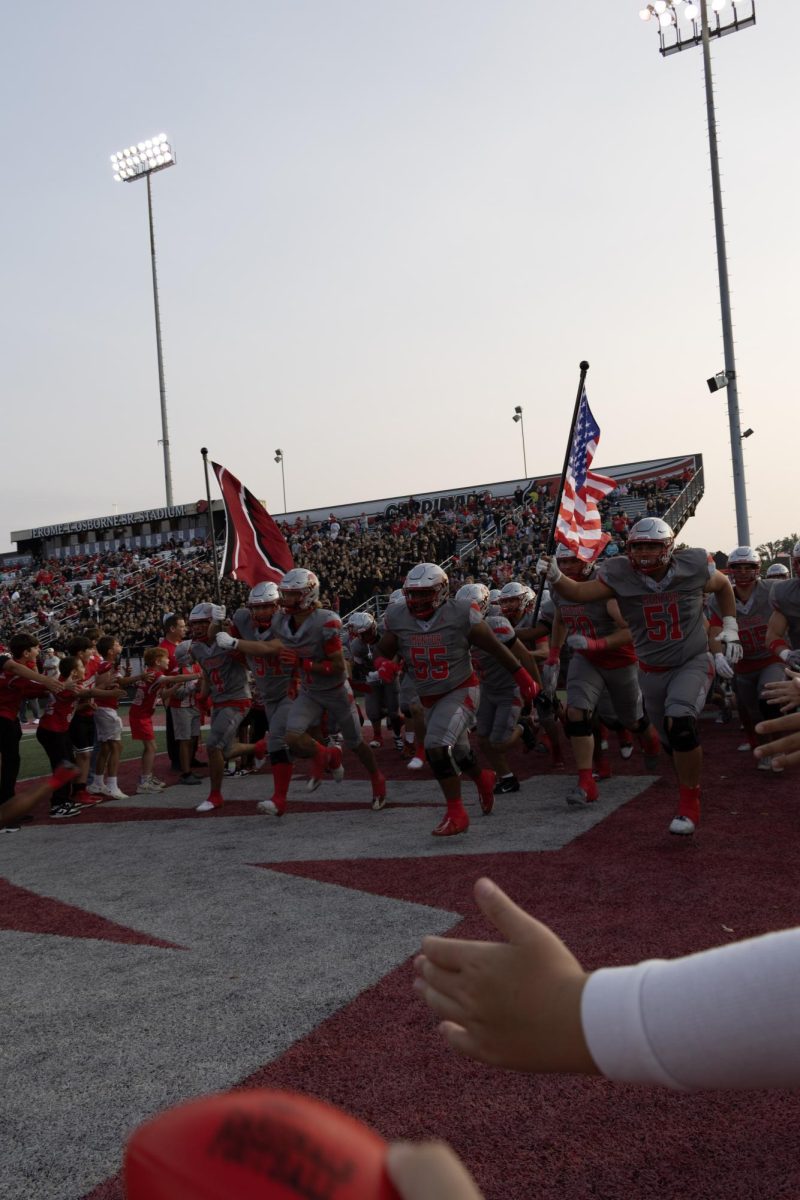Remote Days – Why Do We Have Them?
Cardinal Nation asked our administration about their thinking behind this new recurring calendar item. Read what they had to say about it.

Remote learning at MHS is now part of the calendar
November 8, 2022
Over the summer the Mentor Schools administration came together to plan out the school year. This year, they decided to give the high school one remote day per quarter. This came as a surprise to many people because we spent so much time online due to COVID, and many hoped to get back to normal.
Cardinal Nation had the opportunity to ask Mr. Craig Heath (Superintendent of Mentor Schools) Mr. Jason Crowe (MHS principal) and Mr. Ryan McKnight (Unit 12 principal) about what went into the decision to have these remote days. What follows are their answers to our questions.
Cardinal Nation: What is the purpose of remote Wednesday?
Mr. McKnight: The purpose of remote Wednesdays is to allow students to become acclimated to an educational practice many colleges use at the next level. While we believe the best educational opportunities happen in-person, we also believe we have a responsibility to prepare students for an educational environment at the next level. Remote Wednesdays also allow our teachers a common time to collaborate and design lesson plans that have proven most effective for each student. We design the early part of the day for teacher collaboration and professional development.
Mr. Crowe: Mr. McKnight’s response hits on the reasons we incorporated Remote Days this year. I’ll add not only does this environment prepare students for post secondary education, but many trainings our students will participate in as adults through their employers will be done in a remote setting and many jobs allow for a hybrid model of in-person and remote work or a fully remote model. Incorporating remote learning exposes our students to an environment they potentially could continue to engage in as students and professionals throughout their lives.
Cardinal Nation: Why are they on Wednesdays?
Mr. Crowe: Wednesdays are already modified and we want to limit disruptions to our Monday, Tuesday, Thursday and Friday schedules.
Mr. McKnight: Wednesdays are out late start days which run on a different schedule than the rest of the week. Having remote days on Wednesdays seemed to make the most sense because the schedule was different anyway.
Cardinal Nation: Why did you make the decision to start them at 10:30?
Mr. Crowe: The 10:30-2:30 schedule would be our schedule if we ever ran a Remote Day instead of a District called Calamity Day. This also is consistent with our single day remote day from previous years.
Mr. McKnight: The decision to begin at 10:30 was because it was most similar to the remote schedule utilized during the pandemic and allowed for a schedule both students and staff had used before.
Cardinal Nation: Having a remote day would have never come to anyone’s mind before COVID. How do you think COVID will always play a role in how we learn and work in the future?
Mr. Heath: I believe the pandemic taught us that learning can, and should, take place in multiple modalities. In public education, we need to embrace the technology we have at our disposal and teach students the different ways they will need to communicate, interact, and work with people in the future. By modeling these experiences and showing students how to use these innovative practices, they will begin to develop a skill set that they may not have otherwise obtained under normal circumstances. The pandemic pushed us to get better in that regard.
Mr. Crowe: In terms of work, many companies will continue to utilize a hybrid or fully remote model.
Mr. McKnight: COVID forced us to learn to adapt and overcome some educational boundaries that never existed prior to the pandemic. Many of these changes allowed students and staff to explore and adapt to new opportunities that didn’t exist before such as using Zoom and breakout rooms.
Cardinal Nation: After our first remote day in September, what are your thoughts?
Mr. Crowe: I have heard positive feedback from students and staff. Students enjoyed the flexibility of working from home, but also appreciated knowing they would return to in-person classes the following day.
Mr. McKnight: We reached out to both our staff and students after the September remote Wednesday, listened to our student feedback during our principal advisory session in September, and have made a few modifications since that are reflective of what our students and staff shared with us through survey and discussion.
Cardinal Nation: Do you think the students miss out on their Advisory?
Mr. Crowe: The remote learning day adds value to the overall educational experience. Looking at our advisory schedule, we felt decreasing advisory four times during the year by adding remote days was worth it.
Mr. McKnight: Since remote Wednesdays are only once per quarter we structure the activities for advisory into the Wednesdays before and after the remote day so students don’t miss out on anything.
Cardinal Nation: How do you think we could improve remote days?
Mr. Heath: I am looking forward to seeing how the administrators, teachers, support staff, and students work together in the evolution of the Remote Wednesdays this year. There are so many levels of communication and so many activities and experiences that can be done in this format and should be explored. I would love to see the use of breakout rooms within Zoom for small group instruction and discussions. I would love to see an increase in the creation and presentation of ideas through our various technology platforms. I would like to see students and teachers working together to discover business and community partners that would be willing to host students during these days to provide experiential learning activities that are authentic, meaningful, and engaging. I would like to have community service work included in the opportunities available so students and staff can work together to make our city better. I truly believe we can incorporate innovative ways of learning into the Remote Wednesday model and make this practice one that will benefit our students and staff for many years to come.
Mr. Crowe: An area we could refine is the frequency of student collaboration in a remote setting.
Mr. McKnight: I think there’s always room for improvement and growth and we use student and staff feedback to make adjustments and changes where needed.
Cardinal Nation: Would we ever do an autonomous remote day?
Mr. Crowe: Yes, I anticipate our 4th quarter Remote Day on April 12 being autonomous as the majority of our teachers will be proctoring the SAT for the 11th grade. Students in grade 11 will report to school to take the SAT while students in grades 9, 10 and 12 will work from home on activities assigned by their teachers.
Mr. McKnight: I would not rule out anything, however it would take a lot of planning to ensure our students benefit from it. All decisions are made with the best interest of the students in mind.
Cardinal Nation: How else should we incorporate remote learning into our everyday lives in school?
Mr. Crowe: One way our students can incorporate remote learning is while working in groups. Gone are the days when students have to meet at someone’s home or spot in the community. Students can engage in collaborative work through a combination of multiple ways (Google Chat, Zoom, Microsoft Teams, Google Docs, shared documents, etc.).
Mr. McKnight: I’ll have to give this question more thought.
Cardinal Nation: How do you think the students benefit most from remote days?
Mr. Crowe: The benefits vary from student to student, but overall students practice participating in a remote environment on a small scale where they have to take more ownership for their learning and behavior. Students have to take responsibility to engage in the class and be present even with distractions that are not present in the traditional classroom setting. It also gives students opportunities to see if remote learning fits their learning style as they continue education at MHS and beyond.
Mr. McKnight: Students benefit from using a platform (Zoom) that allows them to prepare for an educational practice used at times at the collegiate level. Students also benefit from having the opportunity during the early part of the day to work on classroom material/assignments or study.
